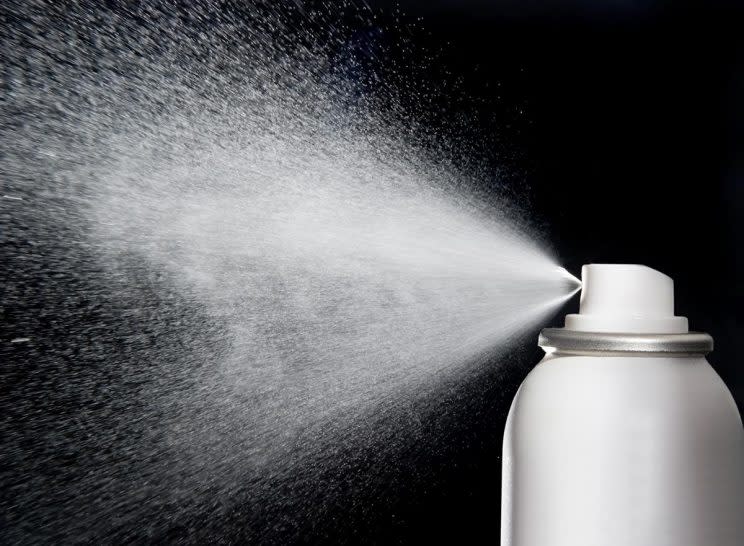Why Pregnant Women Shouldn’t Use Too Much Hair Spray

Most pregnant women are told to avoid soft cheeses, sushi, and deli meat — but now hair products might be added to the banned list. According to a January 2017 study, a chemical found in hair spray and coloring shampoos is linked to birth defects in infant boys.
The small study, published in the International Journal of Environmental Research and Public Health, found that chemicals present in hair spray disrupt endocrine glands (which produce hormones related to development and sexual function) during the first three months of pregnancy, which can lead to a condition called hypospadias in infant boys. With the condition, which affects one in 250 boys, the urinary opening is displaced to the underside of the penis. Most cases can be corrected with surgery at birth, and patients generally lead healthy lives, but if left untreated, the condition can cause urinary problems and sexual dysfunction.
In the study conducted at Amiens University Hospital in France, researchers asked 250 women (who had borne children with and without hypospadias) how much they were exposed to chemicals such as paint, ink, glue, and household products while pregnant. They also asked if the women used hair spray once a week and any coloring shampoo during the first trimester of pregnancy. Results showed a “strong” association between babies with hypospadias and mothers who had used hair spray and, to a lesser degree, those who used coloring shampoos.
The study confirms previous research, which found that pregnant salon workers who were exposed to hair spray during their workdays had double the risk of giving birth to a boy with hypospadias because of chemicals called phthalates. Fortunately, taking folic acid during the first three months of pregnancy resulted in a 36 percent decline in risk.
Of course, the new study has limitations — 250 people is a small sample size, so researchers say a larger study would produce more accurate results. Until then, women are advised to limit — not stop — their use of hair spray and coloring shampoo.
However, if you’re pregnant with a sweet tooth, here’s a good reason to avoid certain candy: A new study published in the February issue of the American Journal of Epidemiology found that eating large amounts of black licorice (8.8 ounces, to be exact) was associated with having babies with a low IQ and female early-onset puberty.
Read more from Yahoo Style & Beauty:
How a Woman Healing From an Eating Disorder Is Dealing With Pregnancy Weight Gain
Woman Continues “April the Giraffe” Stunt After Giving Birth
Follow us on Instagram, Facebook, and Pinterest for nonstop inspiration delivered fresh to your feed, every day. For Twitter updates, follow @YahooStyle and @YahooBeauty.

